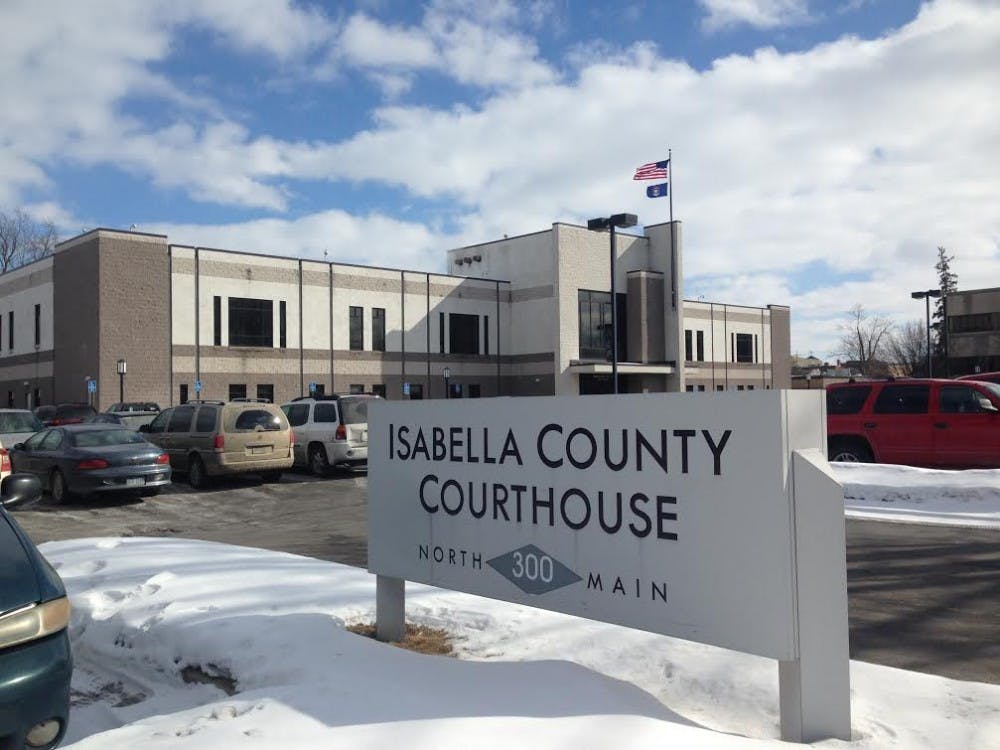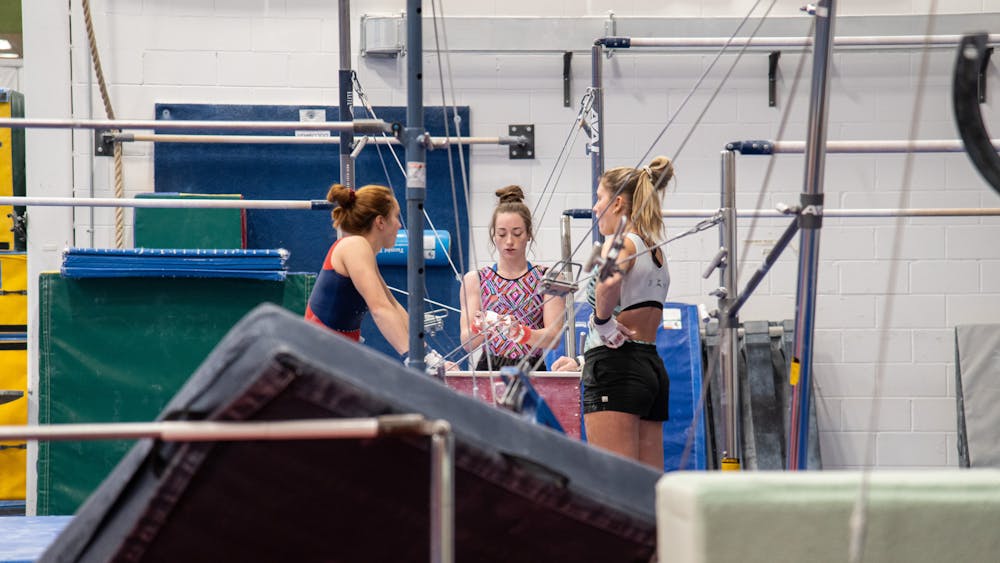Isabella County Trial Court to adopt new policy prohibiting cellphones
Breaches in courtroom security forces court to institute policy

Samantha Johnson | Staff Photographer
Isabella County Trial Court will adopt a new policy prohibiting cellphones in the court house, effective March 9, after recordings of courtroom actions were uploaded to YouTube.
Isabella County Trial court will be adopting a new policy prohibiting cellphones, recording devices and cameras in the county courthouse.
The policy, effective March 9, has been adopted to maintain the security of the courthouse, preserve the integrity of the court record and the trial process and to ensure appropriate courtroom behavior.
"Unfortunately the irresponsible act of one person is causing us to respond at this juncture," said Chief Judge Paul Chamberlain.
Attorneys appearing in connection with any judicial proceeding or presenting evidence of bar membership and Isabella County Trial Court employees will be permitted to use cellphones in the court house.
Law enforcement and corrections officers appearing at the court on official business, members of the media with permission and individuals representing themselves who require a cellphone or electronic device to present evidence will also be allowed.
Additionally, cameras—but not cellphone cameras—will be permitted for use by those attending weddings or adoptions taking place at the courthouse.
Failure to comply with this policy may result in confiscation of the cellphone or electronic device, a fine, incarceration, or both for contempt of court.
After Saginaw County Governmental Center banned cellphones in December 2013, Hemlock attorney Phillip Ellison filed a lawsuit in U.S. District Court in Bay City writing that the ban violates citizen's First, Fifth, and 14th Amendment rights.
U.S. District Judge Thomas L. Ludington ruled April 10, 2014 that the cellphone ban was not unconstitutional. Ludington ruled that citizens do not have a First Amendment right to record courtroom proceedings.
Chamberlain points to innovations in technology as another reason for the new policy.
"I think it's the wave of the future because of the way technology has just grown by leaps and bounds," he said. "We have a responsibility to the public, both on the integrity of the record and on the security of court users."
Chamberlain said the court decided against storing cellphones at the courthouse as other courtrooms in the state have, because it would be "cost and labor prohibitive." Isabella County Court looked into getting four lockers with keys which would total $900. The decision was made to not install lockers because of issues with keys being lost, stolen or taken home by the user.
"There are lots of issues associated with (storing cellphones). We are not going to take people's cellphones and just hold them in our bailiff station downstairs because that's subject to saying 'you were in it, you tampered with it we don't want that responsibility and that's not what our security here is for. Our security is here to maintain the security of other users of the courthouse, jurors, staff, including judges, courtroom staff and to not distract them with cell phones," Chamberlain said.
He suggests people leave their cell phones in their vehicle upon coming to court.
"It's a harsh remedy to the problems that are coming to light," he said. "We have recognized for years that this is a security issue and maintaining the integrity of the record issue, but trying to be as open as possible to the public. We cannot allow people to come into the courthouse, make recordings, and then present those recordings as a record of court proceedings. There is an official record, a way to get that record, and it maintains the integrity of the court and individual cases to make sure an accurate and complete record gets out," Chamberlain said.
Chamberlain is sensitive to this issue, as he has been a target in the past of security issues.
In 1997, a jail inmate who had been placed on suicide watch since his arrest on bank robbery charges shot and killed himself inside the Isabella County Courthouse after grabbing a gun from a bailiff's holster.
"When he came back in looking for the judge (myself), he bled to death right there in front of the jury box," Chamberlain said.
He went on to describe an incident in 2002 where a man shot and killed his ex-wife and two other people in the courthouse parking lot.
"We have a responsibility to the public, to the court staff and to jurors to maintain their safety while they are in this building," he said.
Stay with Central Michigan Life for more on this story.




